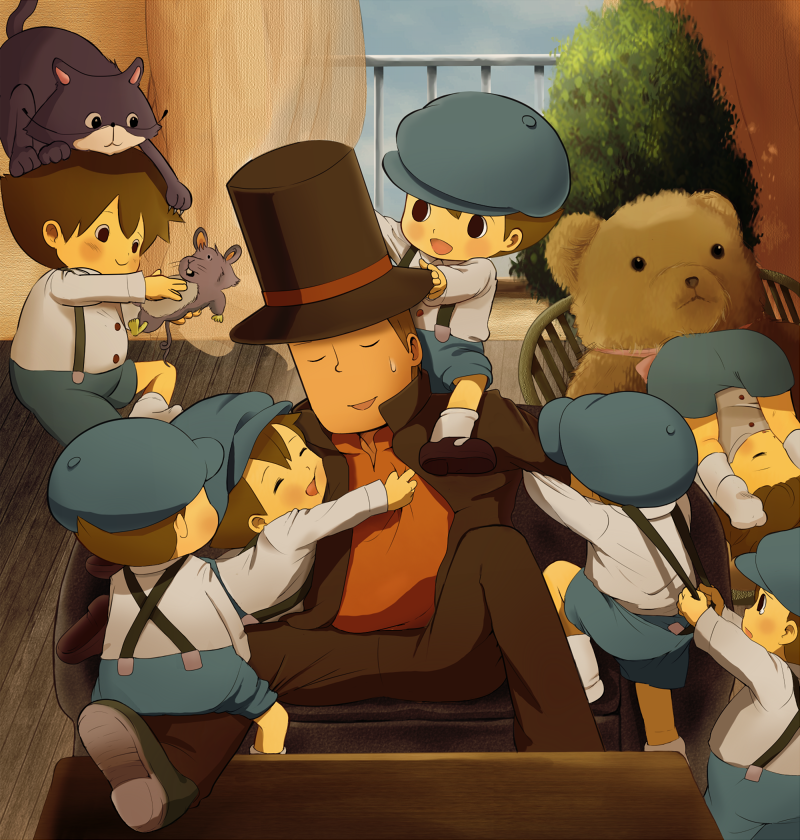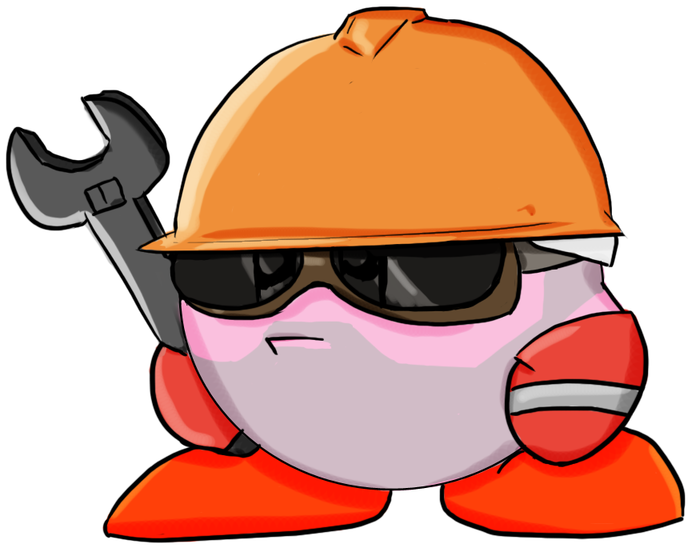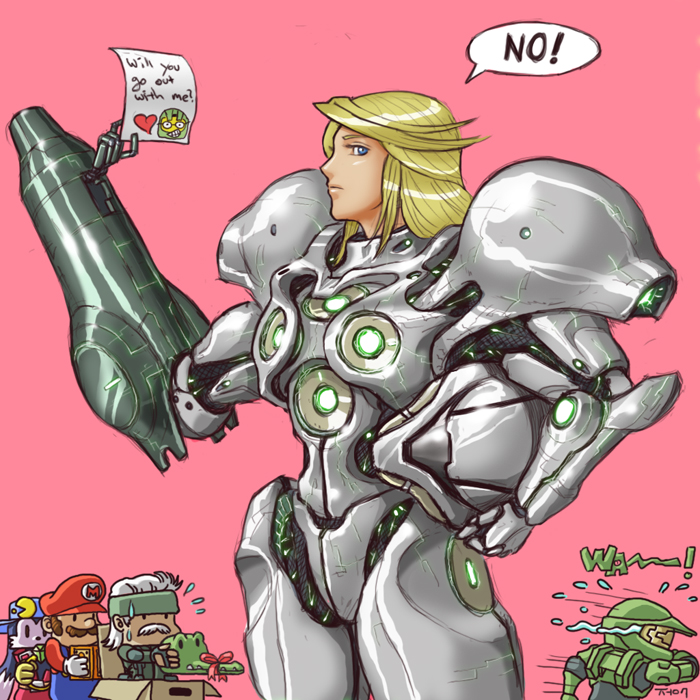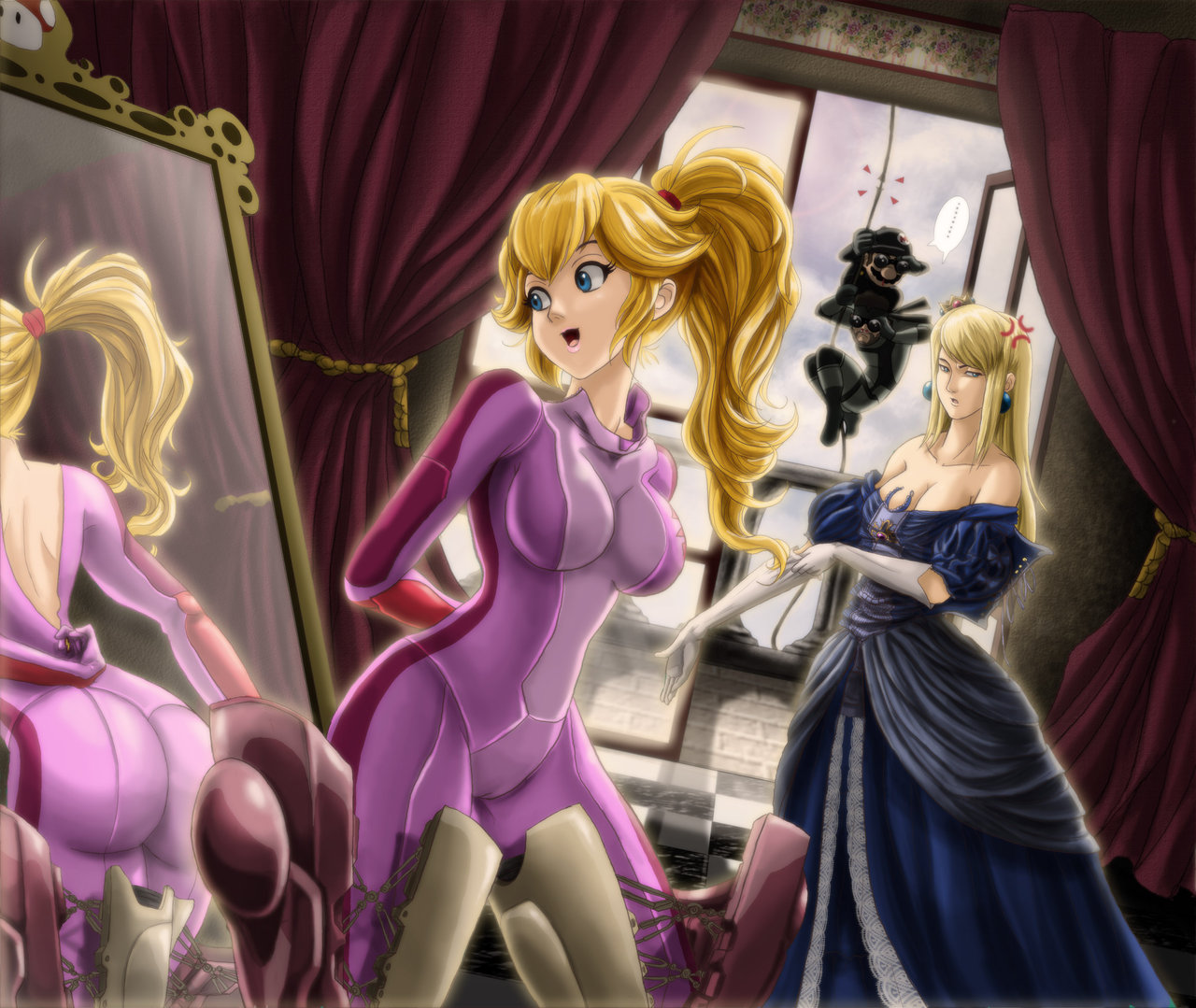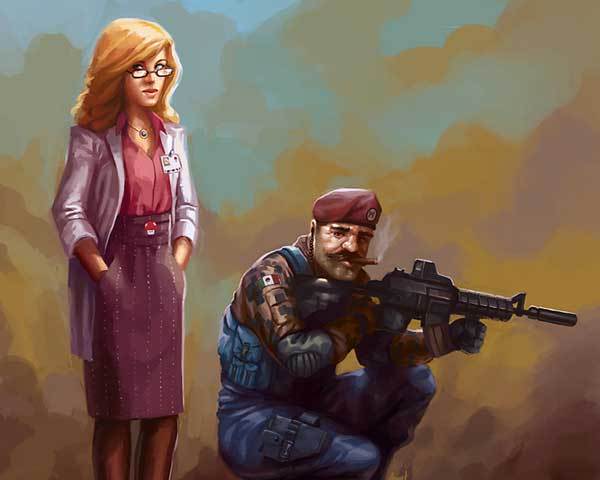
In the first part of my East Meets West series, I talked about the advantages and disadvantages of the current trends in comic books and manga. I tried to make it fairly balanced, since I honestly believe America and Japan are putting out very different but entertaining products. It would be nice to see more melding from both sides, but they’re doing quite well so far. This second part, however, will be about video games, and you’ll see that I won’t be so kind this time around.
Why?
Because I believe that, on some level, BioWare is right when they say the JRPG market is stagnant, even if they couch their argument in marketing for their own game. I’ll explain in detail after the jump.
The Genre of Clones
I agree with the core of BioWare’s argument, but I think it’s a mistake to blame linearity for the creative deficiencies in Japanese games. Final Fantasy VII and Baldur’s Gate 2 have very different design philosophies. The former is largely linear, and the latter is about as open as a story-based game can be. Yet both games are universally praised. So if linearity works for FFVII, why do I feel like modern JRPG’s are stuck in a rut? Because it’s not the structure of the story that’s the problem. It’s the story itself.
How many JRPG’s have we seen where the main characters are an angsty teenage boy and his pure-hearted love interest? And how many where he must fight the evil empire after they destroy his home village and/or kill his parents? The genre is flooded with cookie-cutter protagonists and plotlines. When people describe Persona 3 and 4 as a breath of fresh air, it’s not because of the gameplay. It’s a clever amalgamation of ideas, certainly, but nothing particularly unorthodox. They were fresh and unique because the story was different and wasn’t trying to imitate the popular RPG’s that came before it. Sure, we had a teenage boy protagonist, but it was set in a high school; and Atlus actually took advantage of that setting. You had the usual high stakes “save the world” plot, but it was scrunched between the low stakes “have a social life” plot that–by making you care about that cast–reminded you why your character was risking his life in the first place. It was a merciful relief from the tropes that games like Star Ocean and Final Fantasy grind into the dust.
And yes, I’m well aware that American first-person shooters have the same problem. It’s one that Jon and I frequently lament. The difference, however, is that the story is rarely a selling point for FPS games (Half-Life is one of the few exceptions). With JRPG’s, the story is the priority. Otherwise you wouldn’t be able to endure their often absurd total playtime.
Well, you could, but you’d become as broken and jaded as me.
How To Fix It
Gameplay innovation isn’t the answer. I’ve played enough games to know that Japan is already doing that. What we need is more variety. To prove my point, here’s a list of sub-genres that American developers have been using, which I’ve come up with off the top of my head:
- Post-apocalyptic
- Globe-trotting
- Wild West
- Space opera
- Military sci-fi
- Psychological horror
- Action horror
- Dark comedy
- Parody
- Espionage
- Orwellian
- Dystopian
I could go on, but you probably get my point. I made sure Half-Life 2 was the oldest game on the list (it came out in 2004) to show that America hasn’t just been making a lot of games recently–they’ve been making a lot of different games. Meanwhile, Japan, the country that first showed me that games could be artistic, has been stuck in a genre rut. Some studios are trying to buck trends or keep their unique style alive, certainly. Demon’s Souls‘ aesthetics may borrow heavily from Medieval Europe, but it takes on a much different tone than either country is used to seeing. Sega is still releasing Yakuza games, God bless them. And even though I said it was a mixed bag, I applauded Nier for trying something radical (its development team, sadly, has since been disbanded).
In short, we need more story experimentation.
America Isn’t Perfect
I’ve been heavily focused on Japan because, as I said at the start, I think the imitation epidemic has hit them the hardest. America has a similar problem, though, and it’s on the development side. As much as middleware (pre-made programming engines, basically) can be a blessing for companies, it can also encourage laziness. Far too many games made with Unreal Engine 3 have noticeably similar textures, lighting effects and color palettes. Ideally, middleware should save developers time and money on engine creation so they can spend more time and money figuring out how to make their game stand out from the rest. That’s not what’s happening.
So, in the case of gameplay and stylistic innovation, America should take cues from Japan. Okami was so artistically stunning and added such an interesting mechanic to the classic Legend of Zelda formula that it made up for the weaknesses in its story. And even though Square Enix’s handling of Final Fantasy X-2‘s storyline irritated me enough to write a 2000-word analysis of it, I firmly believe it had some of the best gameplay innovations I’ve ever seen. The only American games in recent memory that have given me that same epiphanic feeling are Portal and Flower, even though there’s no shortage of great Western games. On the other hand, most great, new Japanese games make me think, “Wow, that’s a really good idea.”
Switch It Up
So how should developers fix both these problems? Well, the execution will be different depending on the company and the severity of their imitation habit, but the concept is the same for everyone: start from scratch.
It may seem trite and counter-intuitive, but developers need to try writing and programming what they DON’T know. I admire Square Enix’s approach to gameplay design, since they seem to answer the question “Will it work?” by saying, “We won’t know until we try.” And as another example, DICE is famous for their multiplayer FPS franchise, Battlefield. Then one day they decide to make a game where you use parkour to avoid the guys with guns. Was it flawed? Yes. But it was a bold and exciting experiment that had enough fun moments to win over critics like me.
The lesson is clear: Japanese developers need to put down their usual reading material and write something in a genre they’ve never tried before; and American developers need to take a step back, look at what their competitors have done, and ask themselves why gamers who’ve played God of War should bother with their new third-person combo-heavy action game.
And before you comment, America, “Because this game’s set in Hell!” is NOT an acceptable answer.

